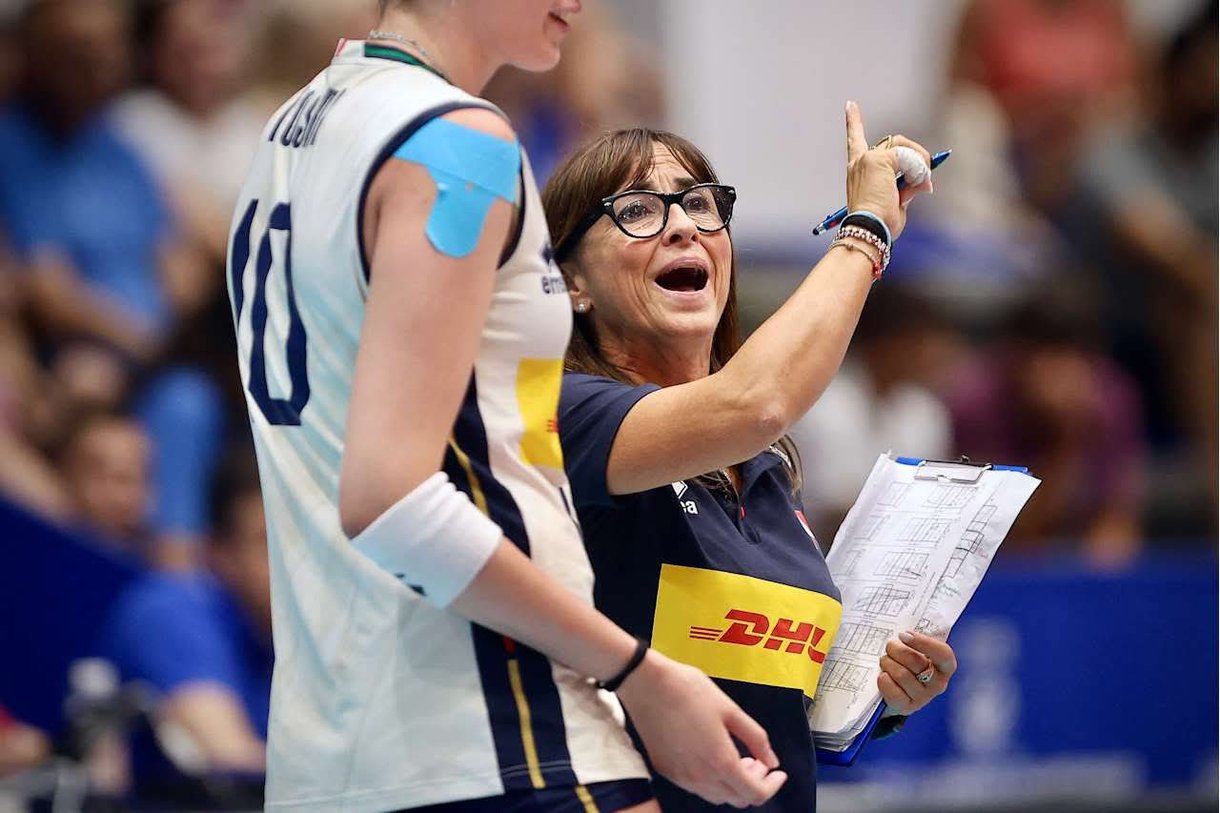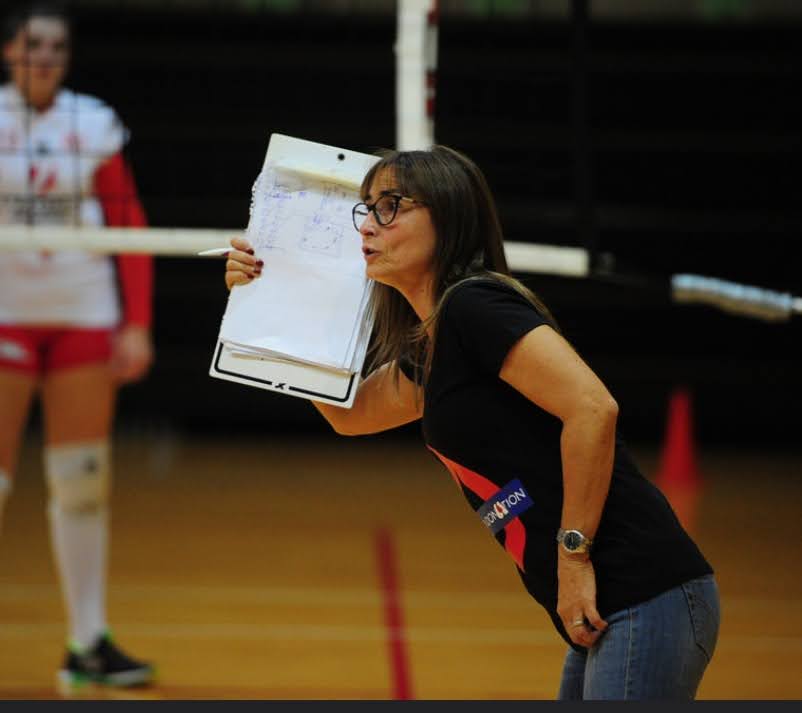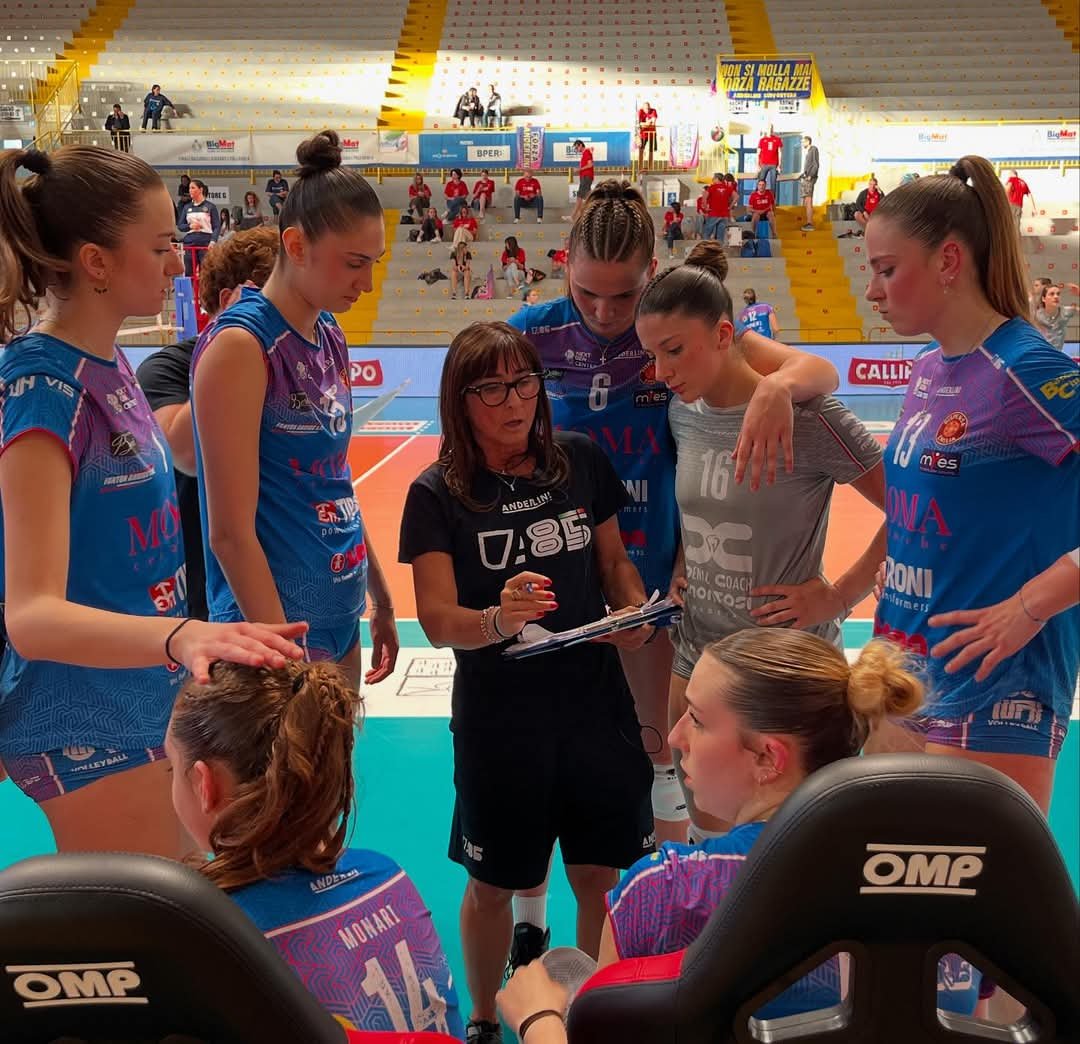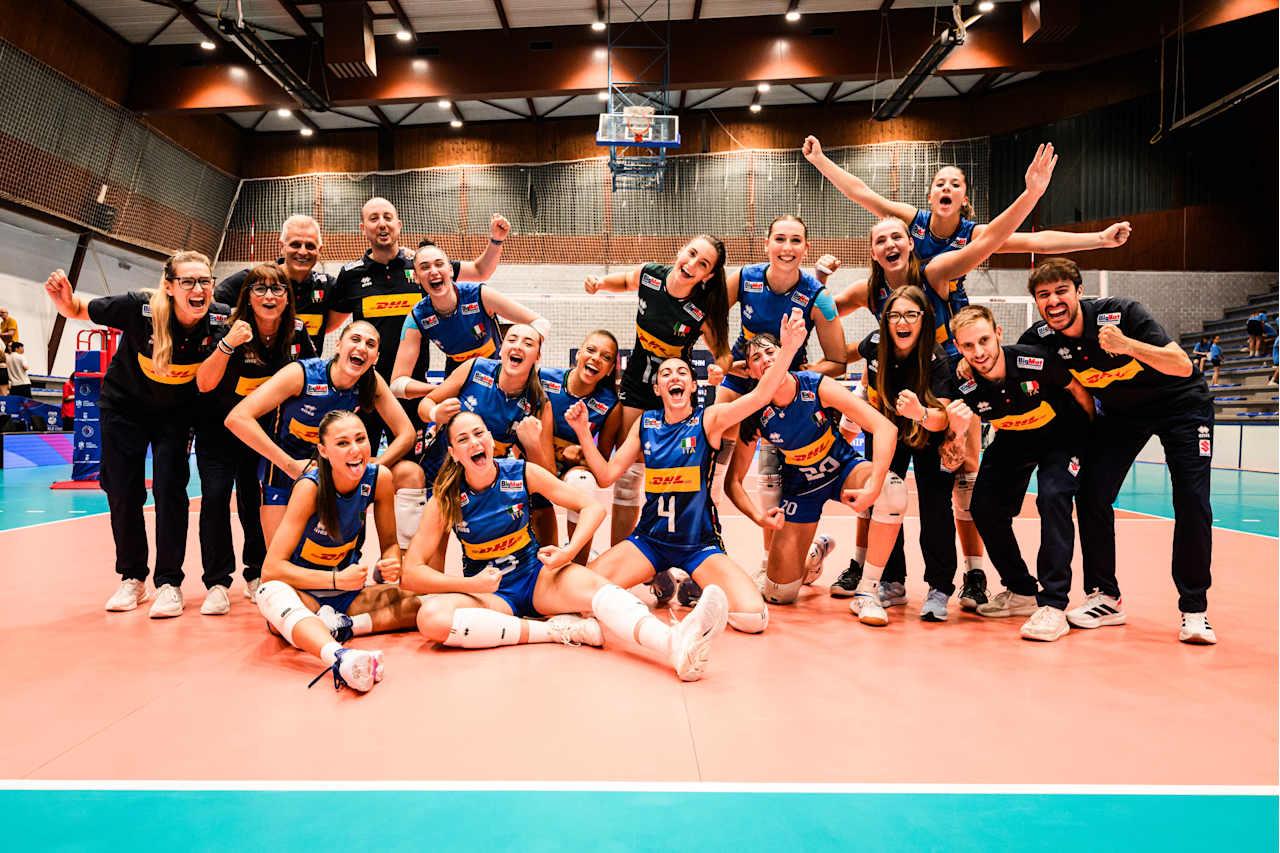Roberta Maioli’s coaching philosophy: Creating a positive environment where players can truly be the best version of themselves
News
Earlier this year, Roberta Maioli’s coaching career somehow reached its climax when she was informed that she would be serving as the head coach of Italy’s U19 women’s national team. A very proud moment for Roberta, whose involvement in Volleyball started when she was just a little kid – six to seven years old – and she would accompany her father, who was working as the physio of the legendary women’s team from her hometown, Teodora Ravenna, winners of 11 consecutive national league titles and countless more trophies and accolades.

“I was surprised when the news reached me and at the same time very excited as well,” she recounts. “Working with a junior national team was a dream come true, especially for someone like me who has been involved with young players for many years and has mentored a number of girls who have made a name for themselves while playing for Italy on the international stage,” she says. She mentored elite players and household names such as Serena Ortolani, Alessia Gennari, and more recently, Gaia Giovannini, whose resume now includes Olympic gold and a World Championship title with Team Italy.
A qualified PE teacher, Roberta started coaching when she was only 18 years old and that journey has taken her to countless regional and national competitions, while working primarily with young girls in a still early stage of their development process. She was lucky to witness and absorb Volleyball knowledge from a young age – but she has been able to develop her own philosophy along the way. “I do put much emphasis on developing some form of empathy with the players I work with. This does not mean that I am always nice to them. They know when there is time and space for fun as much as they realise when they are due to focus entirely on the drills and tasks that they are given. I can say for myself that my own approach to coaching has changed over the years, also because society has evolved and the girls we work with are different than those I was mentoring some years ago,” she continues.

“At the end of the day, even though all coaches have their own strengths and weaknesses, the technical side of the game is widely known and accessible. What does make a difference is the environment that the coach is able to develop, an atmosphere where the players can thrive in so they can develop and become the very best version of themselves, while taking into account their physical abilities. Not all of the players I work with will join the senior national team, but they all can focus on improving and achieve what is within their reach,” she adds. “To instil this feeling and spirit, I try not to focus on mistakes, but rather on what is positive. Nowadays, girls seem to struggle very much with accepting failure – so emphasising mistakes does not take us any further in a development process. Therefore, I rather channel the energy of my players in identifying their dreams and goals and pursue their achievement with as much energy, dedication and commitment as possible.”
To this extent, Roberta mentions again Gaia Giovannini, whose mentality has truly made a difference in her ascension to the Volleyball elite. “I am also lucky enough to work in an club, Pallavolo Anderlini Modena, where I have been able to develop and refine this type of approach. I do strongly believe that we should never – in Volleyball as much as in life – focus on difficulties or defeats. We are meant to take up challenges and to work hard to make sure that we can reach the highest possible level – obviously of what is within our reach. Volleyball truly is a school for everyone’s life since it forges people’s spirit in an environment where friendship, mutual trust, cooperation, mediation, empathy, and supporting one another are quintessential,” she continues.

Back to her time at the helm of Italy’s U19 national team at the World Championship in Croatia and Serbia, an experience that came after a few years of close cooperation with coaching legends such as Julio Velasco and especially Marco Mencarelli, Roberta regrets that an injury early in the tournament did somehow sideline her group, even though the girls responded well. “At the end of the day, it was a truly wonderful experience, where we fought with everything we had.”
Maioli was not the only female coach there – Japan had a woman leading them as well. “To me it was a great opportunity to see first-hand other approaches and how countries from across the globe work. I obviously had seen videos before, but such a proximity was highly beneficial. As far as the role of female coaches is concerned, I think the sight of a female head coach is becoming more and more ‘normal’, so to speak. However, I do believe that female coaches should be judged on merits and not take up a certain function ‘just’ because they are women. Of course, opportunities have to be provided, we need to ensure a level playing field, but it is for us and on us to prove ourselves and to show that we deserve such roles.”

Finally, a few more wise words for those colleagues working with youngsters as well: “It is important to talk and to talk openly and frankly, to establish an emotional connection with the athletes – without conveying any feeling of stress or pressure. They should feel empowered and a sense of trust from our side so that they can believe in themselves and their abilities. At the same time, they should develop some degree of self-reliance and learn to work on their own. A coach is not always there to provide immediate solutions, but rather to equip the players with the tools they need to make the right choices. Moreover to all the women out there, I would say that this path requires much passion and energy, but I have enjoyed every single step of the process this far!” As the Latin adagio goes, ad maiora, Roberta!